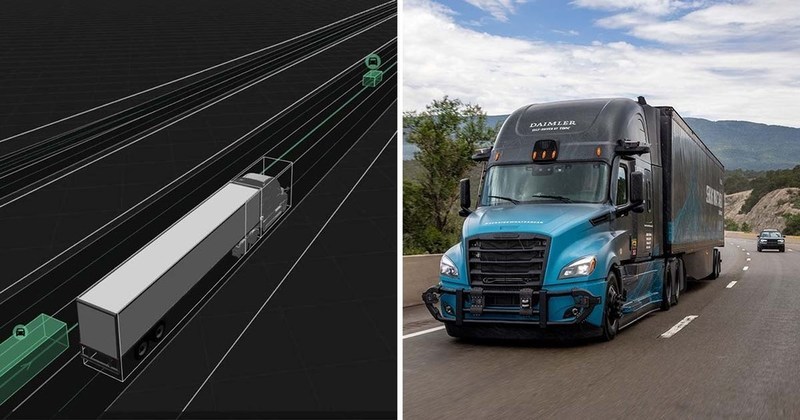Torc Robotics collaborates with Applied Intuition to accelerate development and validation of autonomous trucks
Torc is developing a Level 4 autonomous system for long-haul trucking in the US. Under Level 4 autonomy
Torc Robotics, an independent subsidiary of Daimler Truck AG and a leader in Level 4 self-driving vehicle software for heavy-duty vehicles, and Applied Intuition, a simulation and software tools provider for autonomous vehicle development, announced a multi-year strategic collaboration to address the challenges of autonomous vehicle development in order to safely commercialize Torc’s autonomous trucks for over-the-road applications.
Torc is developing a Level 4 autonomous system for long-haul trucking in the US. Under Level 4 autonomy, a vehicle is capable of performing driving functions under specified operating conditions without human intervention.
Applied Intuition offers simulation and software solutions that enable safe, cost-effective, and scalable approaches to the development of autonomous systems. Its deterministic, high-fidelity, and physics-based simulation software supports virtual testing of Torc’s algorithms in US highway environments.
“At Torc, safety dictates every aspect of our development including how we test and validate our autonomous technology,” said Michael Fleming, CEO and Founder of Torc. “The Applied team has demonstrated their expertise and has equipped us with tools to accelerate the safe development of commercial trucks in a financially viable way. We’re excited to continue our collaboration with Applied to make our roads safer for society.”
The engagement between the two companies started in early 2020 when the Covid-19 pandemic started. On-road testing, a critical part of autonomous vehicle system development, was temporarily halted to ensure the health and safety of Torc’s staff. However, the team was able to continue advancing autonomous driving capabilities in simulation without disruption. Today, Torc’s test trucks run daily routes on public roads in multiple states, and simulation continues to be a vital validation method for new autonomous software features before real-life testing.
The continuing collaboration will help Torc’s autonomous vehicles prepare for unpredictable, potentially dangerous events in the real-world and will enable Torc as it scales as a global organization. Developing autonomous vehicles is a complex engineering challenge, and algorithms require comprehensive training, testing, and validation. Applied Intuition offers technology that supports multiple types of simulation and development infrastructure.
“Simulation allows our team to test new features and capabilities of the autonomous system on hundreds or thousands of different scenarios in a virtual world,” said Ben Hastings, CTO of Torc. “This means by the time the autonomous truck is on public roads, the autonomous system has already been validated in many of the scenarios we could encounter. Above that, strong simulation capabilities are a pillar on our path to commercialization. With Applied Intuition, we are developing for the long-term with a product in mind.”
The close collaboration is an important milestone to forward Torc’s goal of commercializing fully-autonomous trucks. Fleming added he is confident that the approach will be the first profitable, scalable L4 product in the autonomous trucking industry.
“We are excited to collaborate with Torc to help them bring the world’s safest autonomous commercial trucks to market”, said Qasar Younis, CEO and Co-Founder of Applied Intuition. “Torc’s world-class engineering team has adopted many of our tools’ capabilities to design a state-of-the-art development approach. There are many more opportunities to collaborate in order to successfully deploy their trucks at scale.”
Category: AUTONOMOUS, Cab, Trailer & Body, Connected Fleet News, Engines & Drivetrains, Equipment, Featured, Fleet Tracking, General Update, News, Products, Safety, Tech Talk, Vehicles











